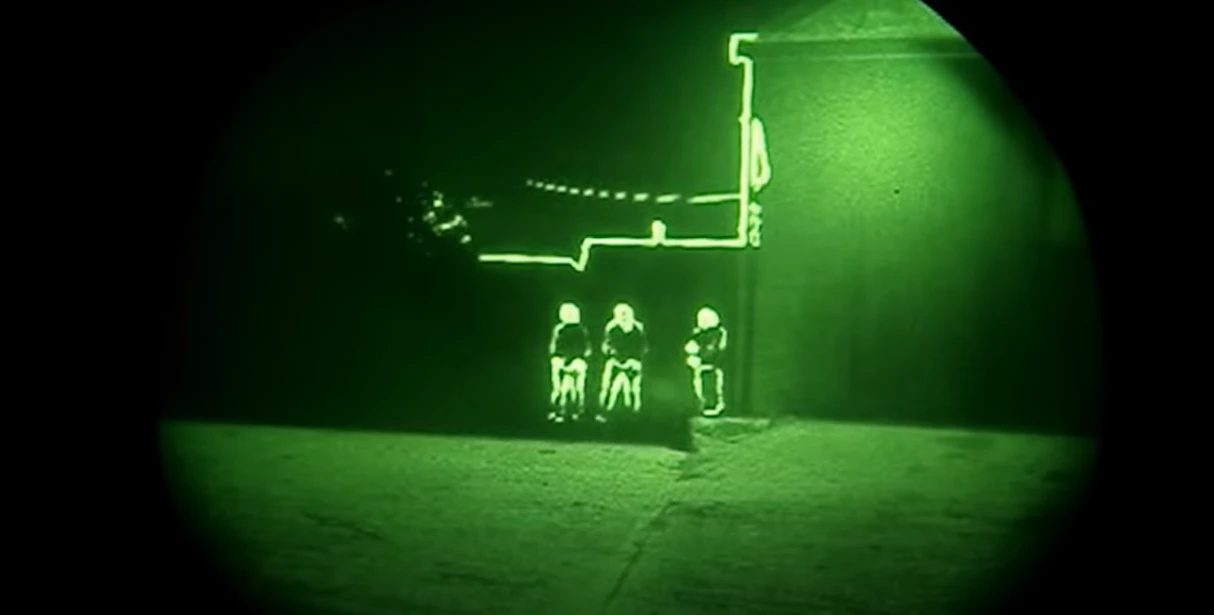Night vision goggles and thermal imaging scopes are both useful pieces of kit in their own right, but combining the two provides the best of both worlds. For those who have only the goggles, Thermoteknix has come up with an attachment adds thermal capabilities with a click.
Night vision technology has been a true game changer when it comes to military tactics – not to mention law enforcement, naturalists, or people checking for fairies at the bottom of their gardens. Though you can buy a night vision system for the price of a good pair of binoculars, the cutting-edge equipment is so advanced that it's subject to severe export restrictions for national security reasons.
The reason that night vision has revolutionized warfare is that the ability to see in the infrared part of the spectrum turns military operations into a 24-hour affair instead of dawn to dusk when an enemy has time to hide, regroup, or slip away. Thermal imagers add another dimension because the ability to see differences in heat means you don't even have to illuminate a subject with infrared light. Their own body or equipment heat gives them away.
The ideal is a system that combines both capabilities, and Thermoteknix has unveiled its ClipIR-12 range that does just that at the recent Eurosatory 2024 defense expo. The fused fourth-generation thermal clip-on system is based on the company's thermal fusion technology and is notable for being much lighter and compact, with higher resolution than previous iterations.
As the name implies, the ClipIR-12 clips onto the objective lens of a night vision scope or goggles. When powered up, it provides a 40-degree field of view that's superimposed on the night vision image. This causes previously hidden objects with a heat signature to suddenly jump out of the shadows as well as increasing vision range.
The Thermoteknix patented shutterless XTi technology produces very low legacy images with no lag, which are much less fatiguing to watch. In addition, the ClipIR-12 has augmented reality capabilities to display data from digital soldier systems and secure communication networks.

The ClipIR-12B can be powered by either internal batteries or an external battery pack thanks to its low power consumption. There's also a multifunction scroll wheel, which allows users to operate the unit by touch while weeping gloves. In addition, it doesn't require calibration when installed because of the ambient temperature.
"The ClipIR-12 range brings more than ten years’ of Thermoteknix’ experience designing and manufacturing fused thermal and night vision systems," said Jonti Salisbury, Head of Imaging Sales at Thermoteknix. "These latest advancements in technology enhance the operational effectiveness, situational awareness, and safety of military personnel in the field."
The ClipIR-12 is not available for sale or use in the United States.
Source: Thermteknix







